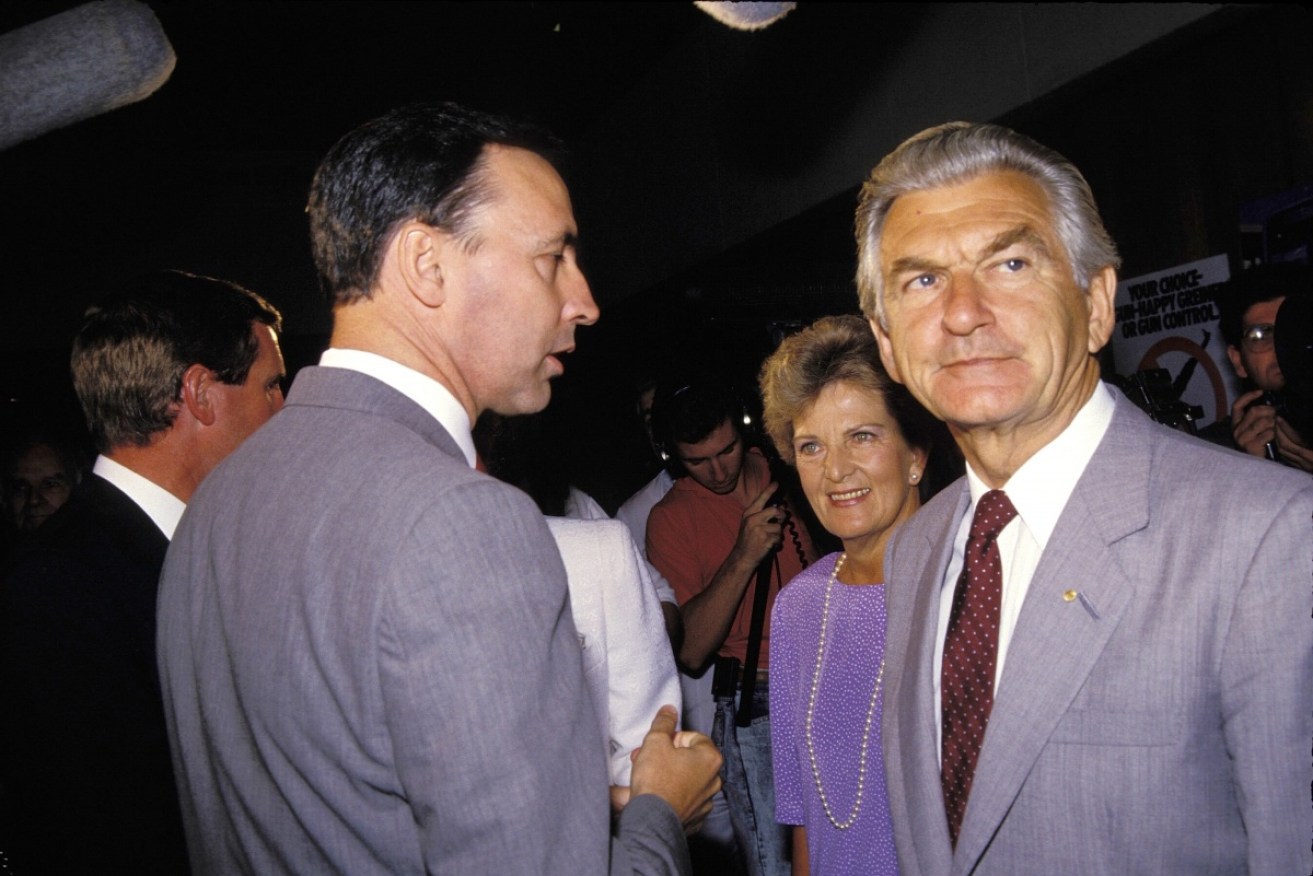ACTU’s plan to lift wages should be taken seriously, not rubbished


The workplace has changed radically since the great industrial relations reforms of the Hawke-Keating era. Photo: AAP
ACTU secretary Sally McManus has a knack for making employers nervous. The latest public utterance from Ms McManus to give skittish employers a fit of the vapours is her plan to achieve wage rises “for all working people”.
The threat perceived by employers was captured by The Australian in its evocative headline: ‘ACTU bid for 1970s-style industrial relations system’.
The 1970s were the bad old days of industrial relations, a time of record industrial unrest, spiking in the first quarter of 1974 with 2.5 million working days lost to industrial disputes.
But Ms McManus is seeking no such thing.
Trade unions have had an influential and constructive presence in the Australian economy since well before Federation. Their existence, and their activism, have ensured that workers are fairly remunerated for their skills and productivity. And while there have been, and are, instances of excess on the part of some unions it is no more or less than can be found among employers.
What Australian industrial relations has always been very good at is finding the middle ground and accommodating the needs and interests of both sides.
The Fraser government saw itself as a union buster in the 1970s and failed miserably.
It is telling that Malcolm Fraser was succeeded in 1983 by a former union leader, Bob Hawke, arguably the most popular PM in Australian history. It is equally telling that the Hawke government’s historic Accord with the trade union movement ushered in a period of economic reform and prosperity. It is no less significant that it was a Labor prime minister, Paul Keating, who in 1993 decentralised the wage bargaining system with the introduction of enterprise bargaining, which was also a boon to the economy.
Despite the doomsday rhetoric of employers, the trade union movement is not an irresponsible wrecker and Australians in the main reject any such notion.
The ACTU blueprint’s aims include increasing the minimum wage to a ‘living wage’, improving award minimums, restoring penalty rates, guaranteeing equal pay for women and ending wage and superannuation theft.
Typical of employers’ overreaction, the head of the Australian Industry Group, Innes Willox, has characterised the wish list as “a joke”, “a return to the bad old days” and, inexplicably, “social engineering”.

Sally McManus has proved to be a provocative leader of the union movement. Photo: AAP
The aspect of the ACTU plan that causes employers the most angst is the call for “free and fair bargaining”.
This is the section of the plan that has employers in a lather:
“Our laws should ensure there is balance in the system so working people can negotiate fair pay rises by ensuring workers can withdraw their labour as a last resort and can access an independent umpire,” the ACTU states.
“Enterprise-only bargaining is failing to deliver for the new economy. Working people need more options, such as sector-wide bargaining, to make bargaining fair and efficient.”
Mr Willox sees this as evidence that “the union movement has given up on decades of community consensus”. He also warns that the proposals would “destroy workplace flexibility which is highly valued by employers and employees”.
The first question one might pose to Mr Willox is how does he think “community consensus” was achieved? It was the co-operation of the union movement that made it possible and workable.
Employers earn themselves no respect when they deify “workplace flexibility” but refuse to acknowledge that this flexibility – particularly in its guise of casualisation and the “gig economy” – has eroded job security, wages growth and retirement income.
Mr Willox is mystified by the ACTU’s quest for “the right to bargain across whole industries and supply chains, including the right to take industrial action”. And yet the reason it does so are beyond contest: Wages have stood virtually still since the global financial crisis, flexible work practices are leading to the creation of an underclass of working poor and some employers are denying employees their basic wage and superannuation entitlements.
Sector-wide bargaining will also benefit those sectors – such as childcare, hospitality and cleaning – whose workers are notoriously underpaid and exploited.
Nobody is calling for a return to the 1970s. Ms McManus is motivated not by nostalgia but by the realities of the present. The economy, the labour market and workplaces are undergoing seismic transformations. Just as companies are restructuring and reorganising to reflect a new economic order the union movement is calling for a recalibration of how wages are set for workers.
This is entirely consistent with the role that unions have always played in Australia, which has one of the strongest economies and highest standards of living in the world.
Unfortunately, employers are also being consistent, not to say predictable, in their knee-jerk disavowal of anything a union leader has to say. Especially, it seems, if that union leader is Sally McManus.
Leo D’Angelo Fisher is a former associate editor and columnist with BRW and columnist for the Australian Financial Review. He was also a senior writer at The Bulletin magazine.








